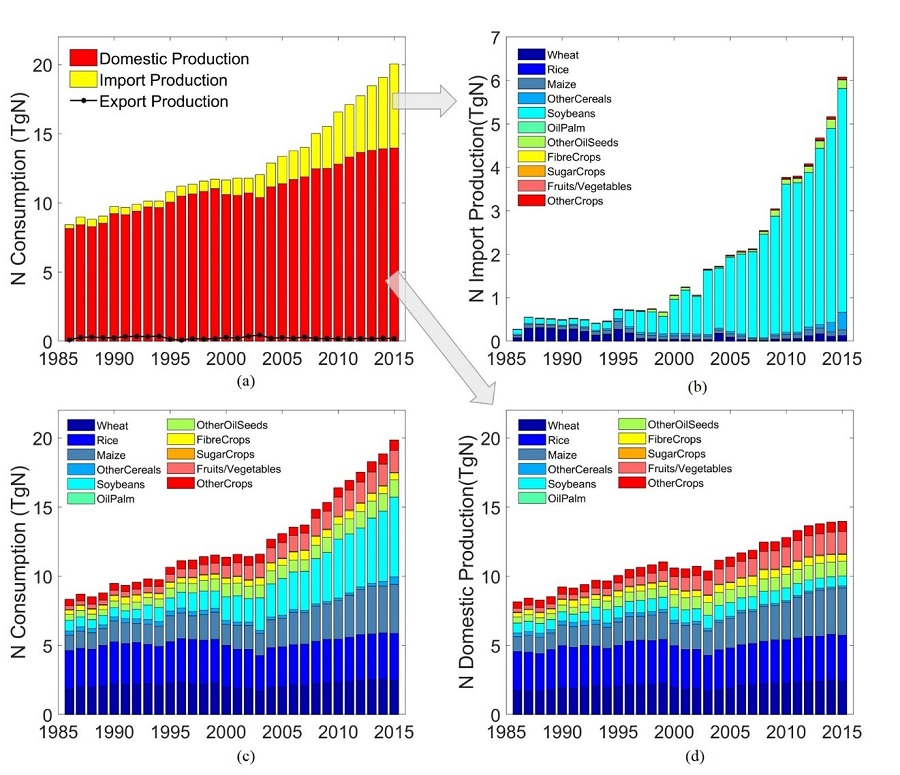On September 20th Guorui Huang, a PhD student of DESS, published in Environmental Research Letter entitled " The environmental and socioeconomic trade-offs of importing crops to meet domestic food demand in China ", exploring a new perspective on the environmental socio-economic impact of China's agricultural trade.
As the world's population continues to grow, meeting people's dietary needs is a major challenge facing the world today. China has 22% of the world's population, but only 7% of the world's arable land. Fertilizer is widely used in many countries to increase crop yields, but it has caused more serious environmental problems. With the rapid economic and social development of China, people's diet has changed greatly, China has increased the import of agricultural products year by year to meet people's growing dietary needs, and the growing agricultural trade has had different effects on China and the world.
In response to this problem, Guorui Huang and others scientifically and quantitatively assess the impact of agricultural imports on China's and global socio-economic environment by compiling and analyzing data on crop consumption and global agricultural trade in China from 1986 to 2015. The study found that crop imports can ease nitrogen pollution and land-use pressures on the Chinese and global scales, but they put China's agricultural supply at risk of unstable bilateral trade. The study also found that with the increase in cost of environmental damage in China, crop imports will greatly reduce the economic costs of environmental damage in China.
For the first time, the concept of "alternative" nitrogen and land is proposed, that is the environmental and land costs that China must pay for domestic production of these imported crops, with the aim of quantifying the impact of crop imports on domestic production in China. Since the efficiency and yield of nitrogen in China's agricultural products are generally lower than those of importing countries, "alternative" nitrogen and land are higher than the actual values of importing countries, and imports of agricultural products can alleviate environmental pressures in China and the world. In addition, based on the current consumption structure, this paper also discusses the potential of reducing nitrogen pollution by adjusting the trade mix, and finds that environmental pollution can be mitigated to some extent by adjusting the combination of domestic production and international imports of agricultural varieties.
Xin Zhang, an assistant professor of The University of Maryland Center for Environmental Science (UMCES), is the corresponding author of this paper and the research is supported by the overseas counselor research project of Tsinghua University.
Link to the original::https://iopscience.iop.org/article/10.1088/1748-9326/ab3c10

The change of nitrogen consumption in China's crops from 1986 to 2015